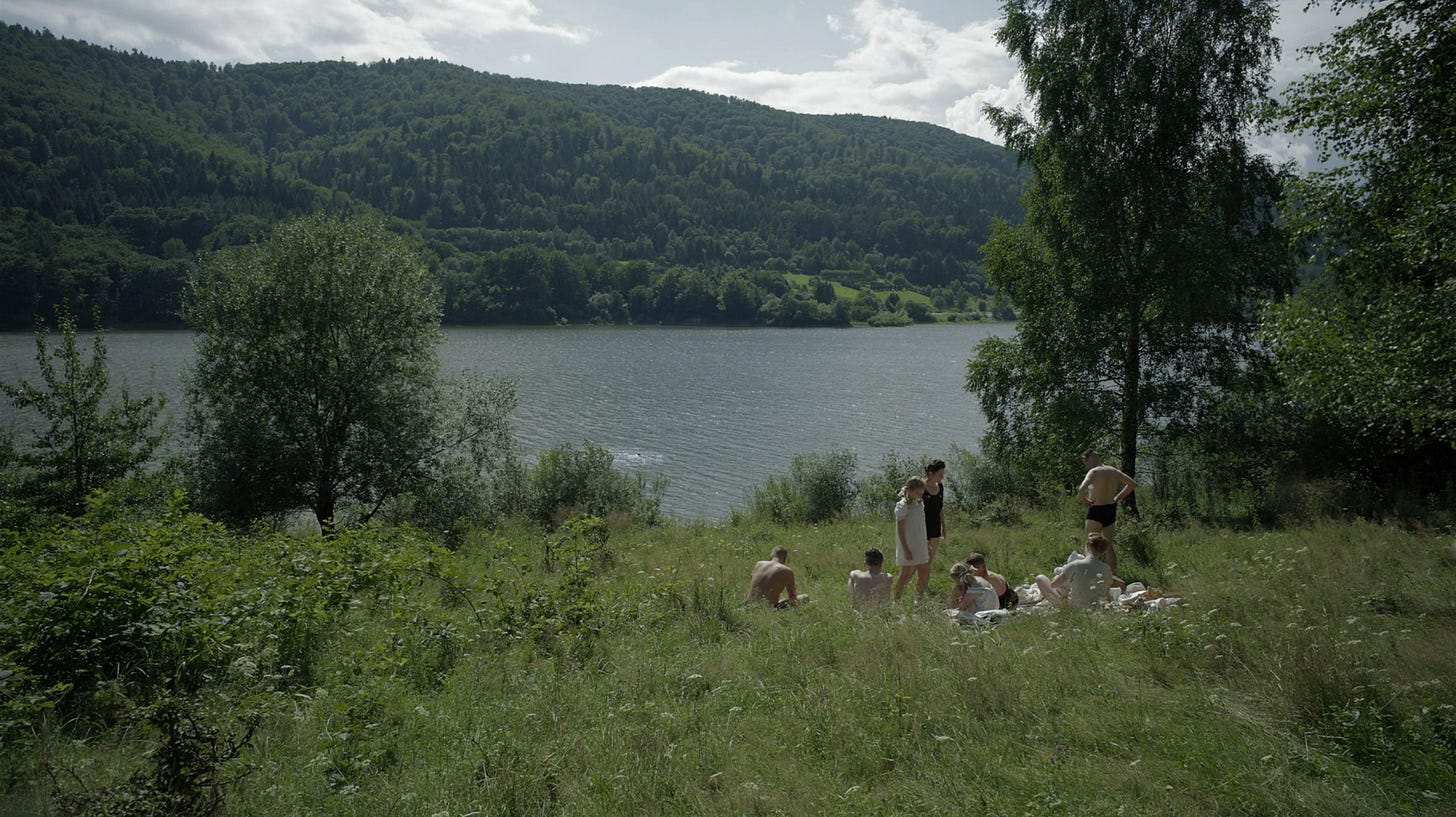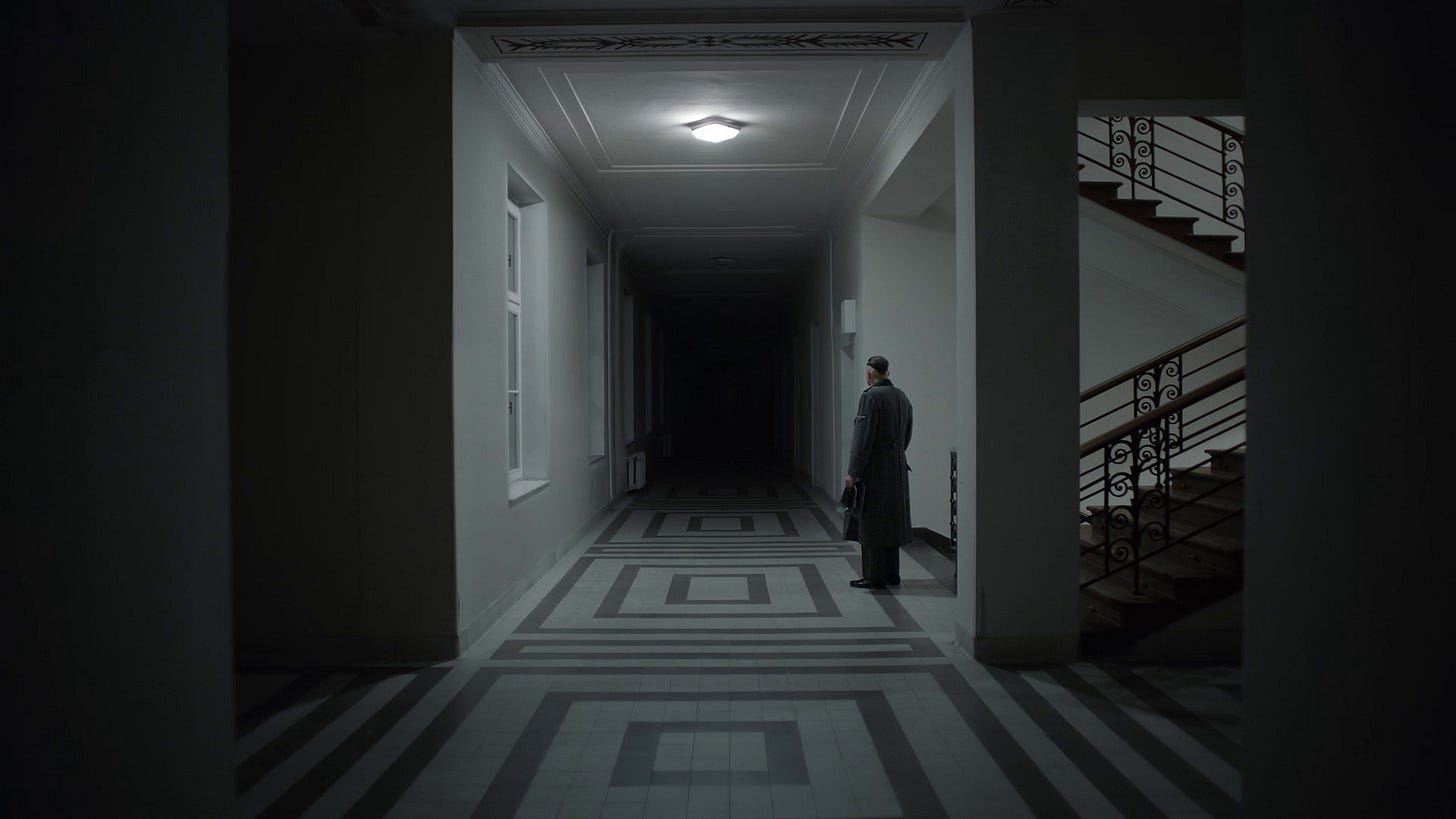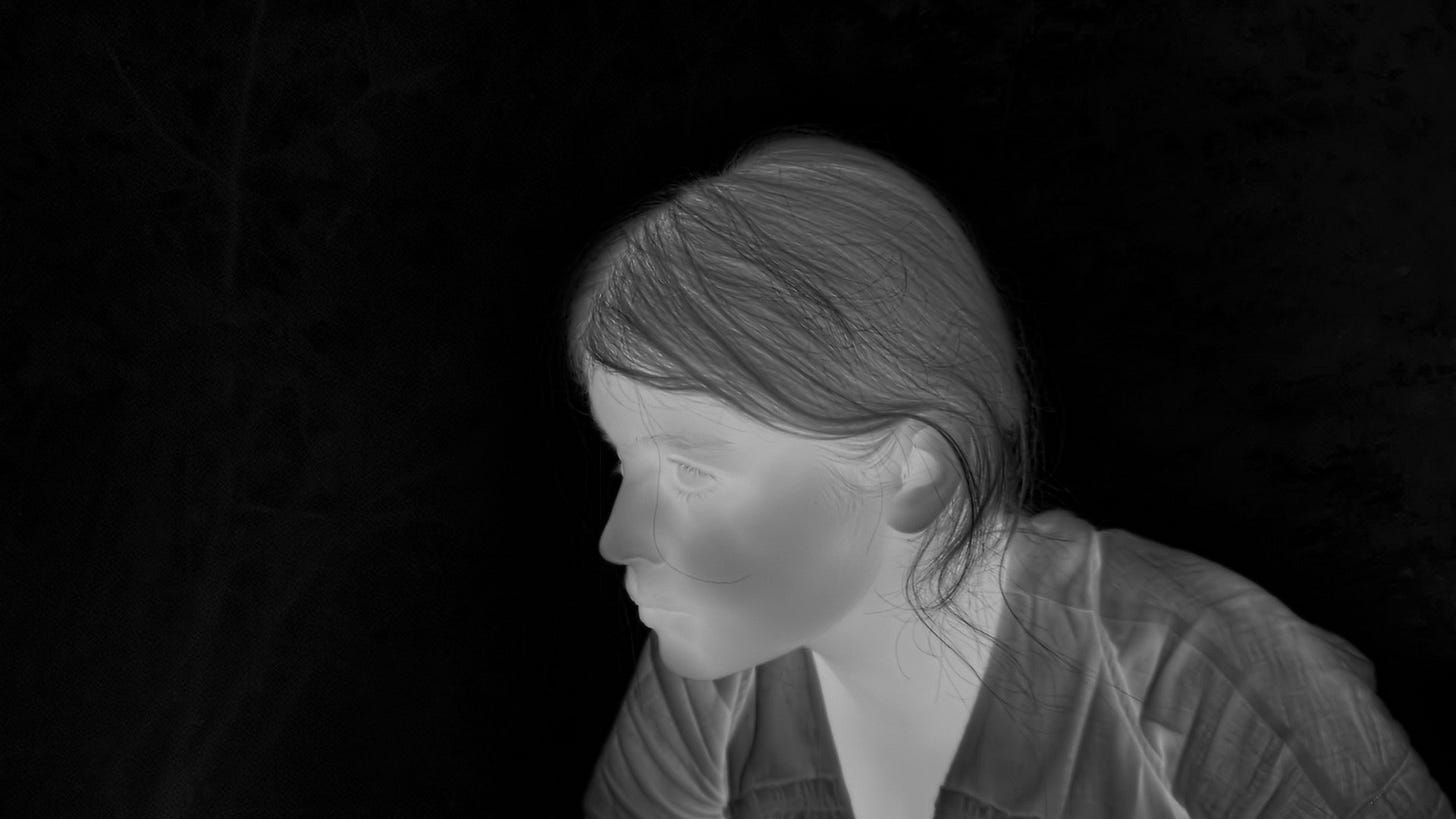I cut all my hair off last September. I had been agonizing over it for months, caught in a loop of indecisiveness. My hair was causing me a lot of grief and taking up too much of my time. My intuition told me that I needed to do it. But I worried. I worried I would regret it. I worried I would feel unattractive. Strangely, I worried that people would laugh about it behind my back, making fun of me for what I had done. (A lot of my nightmares are extremely mundane situations in which people I love tell me, very straightforwardly, that they hate me/never loved me/think poorly of me. I never remember them afterwards, but I’ll still wake up in a sweat, shivering and crying, an eerie déjà vu feeling ringing throughout my body for hours afterwards.)
Looking back, I can’t believe I almost let that fear prevent me from one of the best decisions I’ve ever made. When my stylist brought me back to the chair after washing my hair, I looked at myself and thought, “Yes, this is exactly who I’m supposed to be.”
For so long, there was this “perfect” version of Elodie I envisioned in my mind. Building her up was a form of escapism, because what I envisioned for myself was unattainable and unreachable. It prevented me from living an embodied experience; I was running away from myself all of the time.
I struggle with being seen. I know this comes from growing up the daughter of Haitian immigrants in a predominately white suburban town. It’s a story that isn’t particularly unique or interesting, but it has shaped me, and it is mine.
I learned very early on the important lesson of keeping up appearances, of hiding what was difficult or troubled, of closing my mouth. My mother gave me a book of manners I had to read and study; for years she ironed a rotating uniform of khakis and polos each night for me to wear. (The worst part was that I didn’t even go to a school where this was a requirement. This was all my mother’s idea!) I know her method of control was a way of protecting me. But I can’t even remember a time in my life when I didn’t feel like I had to be twice as good just to be enough. I quickly learned to occupy a space where I felt extremely visible and invisible. Perfection became my fuel; I became an expert at being the good girl.
Until extremely recently—too recently—I thought art was about perfection. Lately, I’ve felt a lot of grief over how much time I’ve wasted out of a need to be perfect.
Attending Harvard didn’t help my relationship to perfection or vulnerability, either. I quickly learned—too late—that any hint of enthusiasm or eagerness wouldn’t get you far in the art institutions that were the most exclusive and elite. Looking back, they were cold and alienating spaces, and I’m not sure if my inclusion in them would have been good for me.
And yet. All of the words I never let myself write. All of the ways I made myself small.
When I write now, I feel as though I’m reclaiming my freedom. A freedom to be messy. A freedom to not have to always have to get it right. It’s why art is so important to me; it has been the only area in my life where I feel like I can reside inside the space of the question mark. There is no such thing as true perfection in the realm of the arts. Yes, there is always the drive to achieve it—and this can make an artist go mad—but no painting, no film, no work of art ever matches the ideal that it was in the maker’s head.
As someone who can get so lost in the ideal, this can bring about an intense feeling of grief.
How easily he sneaks in, this little devil on my shoulder. How restless he is. How greedy.
I suspect I started Permanent Daydream because something in me wanted to be seen. Doing so has been terrifying. A part of me feels unmoored, unsure about all of this sharing. Do I really want to be seen, and how? Will this actually reach people? And does it even really matter? It doesn’t help that right now it feels an extremely precarious time to be a person attempting to build a career in the arts. Hell, it’s a precarious time, period.
Writing has always been a way for me to process. When I write, I am not so much making a definitive proclamation but testing the waters of my mind. Sharing a thought so maybe it’ll find a place to land. I never envisioned it as something that would also allow me to be seen. For so long it felt like I did it in secret. I started a novel sometime around the age of 9 or 10. When my dad asked me to share it with him, enthusiastic, my instinct was to recoil. I felt embarrassed. Why share when I knew it wouldn’t live up to his exacting standards?
My relationship to writing has changed tremendously since then, but of course that young girl is always in me, always remains. It feels deeper now, related to my sense of purpose and dedication to a craft. I’m 27, and by now I’ve accepted that the act of writing—the space of being a writer—is fundamental to my being. Turning away from it means turning away from myself.
That doesn’t mean I’m not afraid.
We can’t control what other people think of us. And so we all have our own elaborate forms of self-protection, layers of armor we don to defend ourselves. I so fear being misunderstood. It’s why I can easily tell myself I don’t need other people. The rifts that occur out of being human can be so hard to bear.
But at the same time, I can’t run away from my vulnerability. I am a soft person, there is simply no hiding it, no matter how hard I try. It leaks out of me; you can read everything on my face. There is no doubt that I need people. I live for moments of profound communication and connection, the humming electric space that occurs between people. When I was younger I used to be obsessed with it. My body vibrated with need. As I age, I can feel the waning of that innocence, that desire to see potential and wholeness in all things.
What would an ethics of vulnerability look like? Soft power, a phrase that resonated with me while I listened to this episode of one of my favorite podcasts, Vibe Check. In the episode, host Zach Stafford interviews curator and writer Kimberly Drew (aka museumammy) about softness. Drew is best known for her work as the former social media manager for the Metropolitan Museum of Art. I first encountered her in high school through her fantastic Tumblr blog Black Contemporary Art, a resource that, looking back, was a huge influence on me at the time.
In the episode, host Zach Stafford and Drew discuss their relationship to softness, care, and burnout. At one point, Drew says:
To be on this journey of softness is to understand that there is hardness. To be in this conversation around freedom is to grieve the fact that we’re getting free from something. So when I’m thinking about softness or self-care or these kinds of things, they are particularly rigorous acts. There’s a lot of labor that goes into the eloquence of it.
[…]
For me when I think about the soft life, I think about dance. I feel the rhythm of it, where it is building out the choreography of your life such that you can float through it. It is the rigorous work of setting boundaries. It is the rigorous work of committing to your craft.
[…]
I don’t think we have to live in a world in which we always delay pleasure. I from a very young age have always been really about really seeing the harvest of my seeds. I don’t understand, “I have to wait until this set point in my life until when I can actually enjoy it.” I want to work and enjoy, I want to work and enjoy.
I started Permanent Daydream because I wanted to carve out a space in my life to think deeply about beauty and possibility in relationship to living. I don’t have evidence for it—maybe it’s just a kind of faith—but I strongly believe that beauty and possibility are connected to what it means to live a whole and embodied life.
But I worry that my desire for or belief in beauty can be misinterpreted as indulgent or naive. Why talk about beauty when there is so much suffering?
Because I want to keep living.
In being beholden to beauty, I feel more beholden to what I cherish, what is therefore meaningful to me.
Beauty as something to have but never hoard, for the beauty was never mine to begin with.
I’m reading Simone Weil’s Gravity and Grace. I’m reading it slowly, like I’m imbibing it, like it’s wine:
Grace fills empty spaces but it can only enter where there is a void to receive it, and it is grace itself which makes this void.
To love truth means to endure the void and, as a result, to accept death. Truth is on the side of death.
Man only escapes from the laws of this world in lightning flashes. Instants when everything stands still, instants of contemplation, of pure intuition, of mental void, of acceptance of the moral void. It is through such instances that he is capable of the supernatural.
Whoever endures a moment of the void either receives the supernatural bread or falls. It is a terrible risk, but one that must be run—even during the instant when hope fails. But we must not throw ourselves into it.
I don’t ever want suffering to reduce my capacity for hope or my belief in other people. But I don’t want to turn a blind eye either, forever lost in a daydream of my own making. So what is the space of the permanent daydream? Is it an invitation? A space you don’t just inhabit on your own, inside your own mind, but a collective energy to tap into, something to be shared?
Can we enact change through softness? Through yielding?
“In the last square of sunlight” by Elizabeth Arnold
This week’s recommendations & encounters:
I. A film - The Zone of Interest, dir. Jonathan Glazer
Spielberg declared The Zone of Interest (2023) the best film about the Holocaust since his own Schindler’s List (1993). I’ve been slowly making my way through Jonathan Glazer’s filmography after finally watching and loving Under the Skin (2013). The Zone of Interest follows the commandant of Auschwitz, Rudolf Höss, as he and his wife Hedwig strive to build a dream life for their family in a house and garden next to the camp. I might save my thoughts on the film for another time, because it’s so rich and a little mention here feels like a disservice. (I could write an entire essay about the garden in the film, as well as the sound design.) It is a very still film but every single frame of it arrests. The ending, for me, makes it a masterpiece.
During his acceptance speech for the BAFTAs, producer James Wilson said, “A friend wrote me after seeing the film the other day that he couldn’t stop thinking about the walls we construct in our lives which we choose not to look behind. Those walls aren’t new, from before or during or since the Holocaust, and it seems stark right now that we should care about innocent people being killed in Gaza or Yemen in the same way we think about innocent people being killed in Mariupol or in Israel.”
II. An album - Animals by Kassa Overall
This album by jazz drummer and producer Kassa Overall broke me out of a listening rut, and thank god. Don’t know how I missed this one! Released in May of last year, Animals includes features by a host of great musicians: Wiki, Theo Croker, Nick Hakim, Vijay Iyer and Danny Brown.
III - This beautiful tribute to reporter and photographer Greg Yee, co-written by my coworker Michael.
IV. If you’re in New York or Los Angeles and looking for ways to support Palestinians through the arts:
On March 1, The Living Gallery in Brooklyn will be hosting an exhibition and print sale of the work of sisters Maysaa and Heba Zagout. Heba was killed during an Israeli air strike on October 13; all proceeds will go to Heba’s family.
On March 3, the Feminist Center for Creative Work will be hosting With Fire In Our Hearts, an evening of performance art for Palestine. The event will be co-hosted by For Your Viewing Pleasure.
As always, thank you for being here.
If you’ve been enjoying these weekly posts—which are always free—please consider becoming a paid subscriber. Permanent Daydream is truly a labor of love, and doing so is the most direct way you can support me and my work!
I’ll see you in a week 💌










